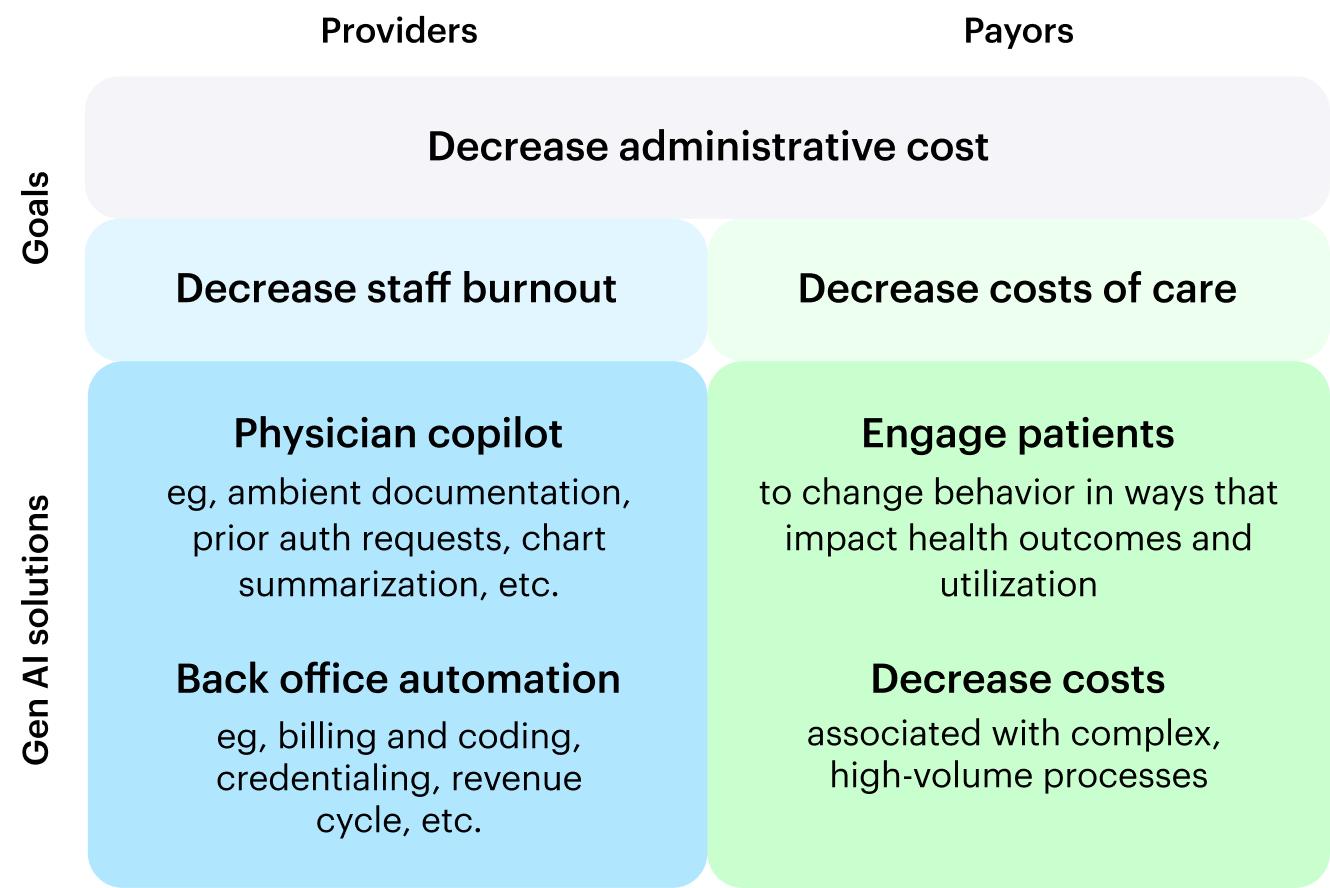
The big book of generative AI use cases for healthcare payors
Introduction
The healthcare industry is poised to change more in the next decade than it has in the past half-century, and it’s all thanks to generative AI. These powerful technologies aren’t just enhancements — they will fundamentally restructure the way we address inefficiencies in healthcare.
Current challenges in healthcare
Today’s healthcare landscape is a mess. Administrative costs are soaring, resulting in billions of dollars in lost revenue for insurers and providers alike. Inefficiencies create bottlenecks in clinical workflows, delaying care to patients. Despite all the talk about data-driven healthcare, most healthcare processes are stuck in the mid-20th century. Healthcare is the only industry where the application of IT tends to worsen, not improve productivity, to the frustration and demoralization of clinicians and managers alike. Rising costs, labor shortages, and regulatory pressures are squeezing providers and payors, leading to burnout among healthcare professionals and dissatisfaction among patients.
Why generative AI is the solution
Generative AI emerges as an ideal solution to these pervasive issues by automating high-volume tasks and synthesizing complex data. This not only reduces the strain on resources but also enhances the accuracy and speed of healthcare services. For instance, AI can augment the entire lifecycle of member management, from initial contact through ongoing care coordination.

Importance and benefits of AI for healthcare payors
For healthcare payors, the adoption of generative AI is crucial. AI-driven solutions enhance member engagement through regulation-compliant personalized communication and proactive health management, leading to higher satisfaction and retention rates. Generative AI can dramatically reduce operational costs and administrative overhead, allowing payors to focus on improving patient outcomes and optimizing care pathways. Plus, the ability to analyze vast amounts of data in real-time supports informed decision-making and policy development, enhancing the overall efficiency of care.
At the same time, health payors are uniquely sensitive to challenges around data privacy, governance, and change management. The potential benefits are clear, but the path forward is not. For most payors, the question becomes: where and how do we start?
Consider this your launch pad. Our guide is designed to show you the power of generative AI technologies to help you address your toughest challenges — like cutting administrative costs, boosting member engagement, and analyzing complex member data. By detailing practical applications and demonstrating the benefits through real-world examples, “The big book of generative AI use cases for healthcare payors” serves as a valuable resource to leverage AI to improve efficiency, enhance the quality of care, and optimize operational outcomes.
Link nội dung: https://myphamsakura.edu.vn/ai-check-a56682.html